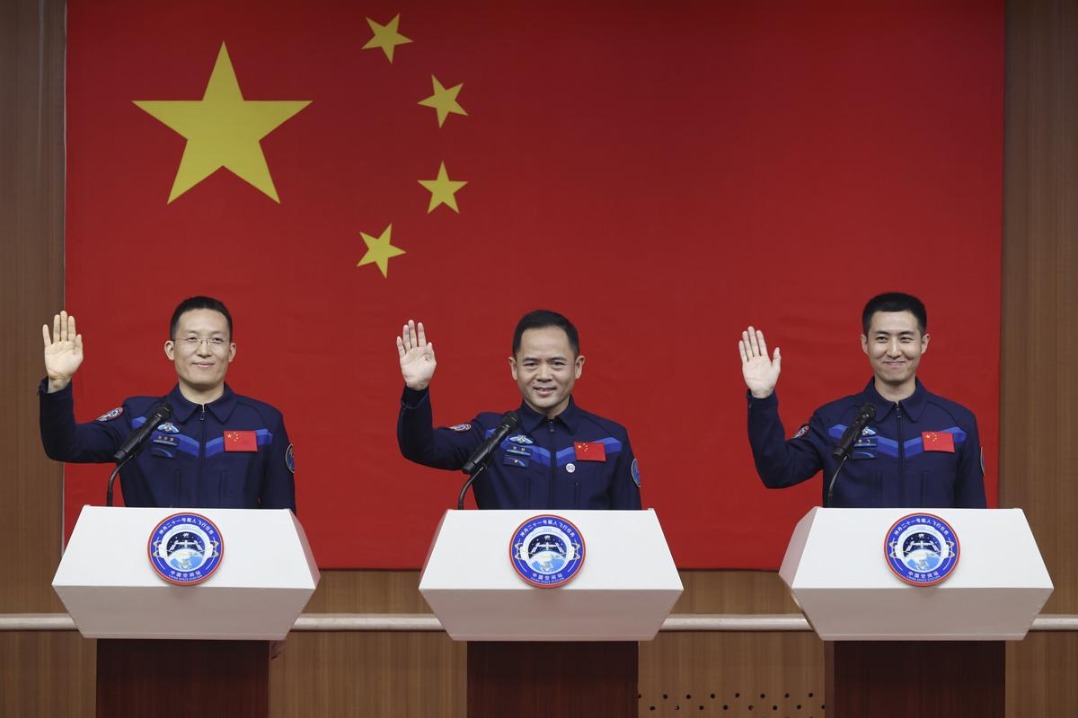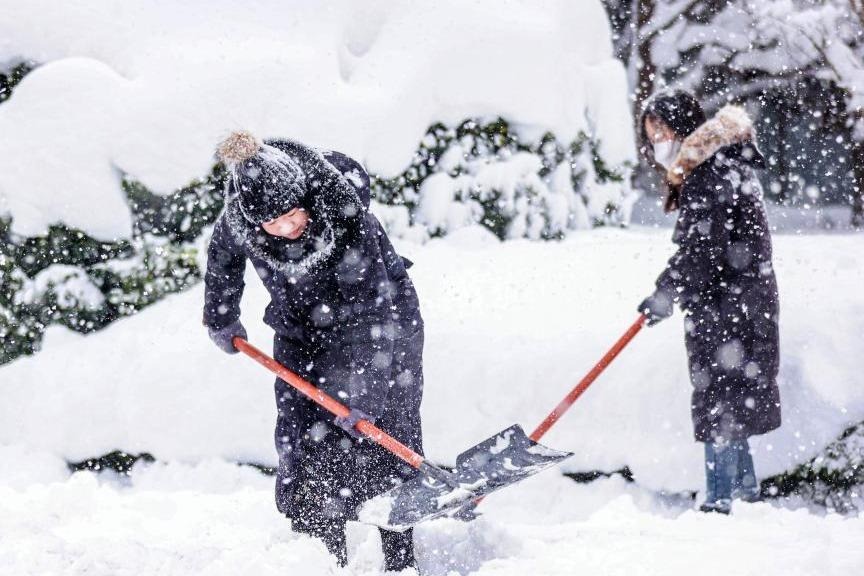In the land of imagination, CHERRIES GIVE LIFE
Small theater companies in Beijing have had to think outside the box and outside their venues to get by in the days of COVID-19, Chen Nan reports.

The play The Cherry Orchard by the Russian playwright Anton Chekhov was his final masterpiece, published in 1904 and premiering six months before his death in July that year. The play, following the decline of the upper-class Ranevskaya family, is one of Chekhov's most popular among Chinese audiences and has often been adapted and staged in Chinese theaters.
Now, amid the COVID-19 pandemic, the classic work has gained a new layer of meaning.
On April 17 Li Yangduo, founder of Drum Tower West Theatre in Beijing, published an open letter on the theater's social media platform, saying:"Every April we celebrate the birthday of the Drum Tower West Theatre, but this year, because of the COVID-19 outbreak, those celebrations cannot be held. Spring has come but COVID-19 has become a pandemic, a threat to the theater business like no other. We are unsure about our future. What can be done? We've decided to save ourselves."
As part of that financial rescue effort Li came up with the idea of selling cherries, which was inspired by the theatrical producer Li Ge. Early this year he returned to his hometown, a small village of Yantai, Shandong province, to celebrate Lunar New Year with his family. The COVID-19 outbreak means Li Ge's production work has been put on hold, and for the past few months he has been living with his parents instead of returning to Beijing.
"This is the longest time by far that I've stayed with my parents since I left to go to university in Beijing," says Li Ge, who helps on the family farm. However, the coronavirus has also taken a toll on the fruit trade, and Li Ge uses his social media platforms to sell cherries for his family and the village.
"When I saw that Li was selling cherries it immediately piqued my interest,"Li Yangduo says."Of course I'm a huge fan of Chekhov's The Cherry Orchard, and when I saw the pictures of real cherry trees that Li Ge posted on line it struck a chord with me."
Inside the Drum Tower West Theatre there is bookshop called Cherry Orchard, named, obviously, in Chekhov's honor.
"There's never been anything like what we're going through now, and it's unclear when we'll be able to put on shows again, but we're determined to keep the theater alive," Li Yangduo says.
Theater buffs have responded warmly to the drive to raise money, and within three days of the cherries going on sale, more than 1,500 kilograms of the fruit had been sold.
"It's far beyond what I'd expected,"Li Yangduo says. "Of course, we'd never sold fruit before, but we knew people would want to show their support and that like us they are really keen to get back to watching plays. For all of us the theater is a land of imagination that is full of joy."
Drum Tower West Theatre, founded six years ago, has become one of the most popular small private theaters in Beijing. It has produced 12 plays, including The Pillowman, adapted from the award-winning play of the same title by the Irish-British playwright and director Martin McDonagh, and Thunderstorm, by the renowned Chinese playwright Cao Yu.
Last year nearly 300 performances were staged at Drum Tower West Theatre, attracting about 60,000 theatergoers. Plays the theater has produced also toured the country last year, with more than 60 performances, and attracting about 60,000 theatergoers.
Li Yangduo says that in the first half of this year the theater was going to present two plays, The Pillowman and One Sentence Worth Ten Thousand, adapted from the novel of the same title by Liu Zhenyun, and was going to take them on a nationwide tour, with about 100 shows before June 30.
"All the shows have been canceled because of COVID-19, and we've lost millions of renminbi," Li Yangduo says.
Li Yangduo, born in Heilongjiang province, Northeast China, and in her 40s, studied economic management at university and worked as a statistician for a State-own company in her hometown. But in 1996 she moved to Shenzhen, Guangdong province, and a year later founded an advertising company in Guangzhou. She also became a producer and distributor of television dramas and TV movies.
Her interest in theater began in 2009 when she was introduced to Stan Lai's play The Village, a three and-a-half-hour epic about the Chinese mainland diaspora in Taiwan, her company being involved with publicizing the play in Guangdong.
The following year she moved to Beijing, China's theater mecca, hoping to open her own theater.
"I watched many plays in Beijing, and they brought me a lot of happiness, but many tears, too. I wanted something that was thought-provoking, something that is unique for theatergoers in the capital."
She was utterly determined and fearless, she says, partly because she was unaware of the risks that running a theater presented.
One day in 2010 she visited an abandoned theater hidden among hutong (narrow alleys) in the downtown area of the capital, Gulou Xidajie, or Drum Tower West Street.
"The moment I walked into that rehearsal room I just new this was where I was going to start by own theater," she says.
She chose McDonagh's The Pillowman as the opening play, directed by Zhou Ke. The response was immediate and positive. Since then, Drum Tower West Theatre has become a favorite hangout for the city's young, trendy and theatrically aspiring.
Unlike bigger theaters in Beijing, many with a capacity of more than 1,000 seats and put on big-budget shows, smaller theaters such as Drum Tower West Theatre cater to young theater lovers with artistically pioneering and small-budget plays.
One of Drum Tower West Theatre's most loyal followers is He Yingnan, who watched the play Electronic City, written by the German playwright Falk Richter and performed at the theater by On &On Theatre of Hong Kong in the summer of 2015.
"The theater, tucked away in traditional hutong, offers an idle environment," says He, born and raised in Tianjin, and who now lives in Beijing. "I was also impressed by the theater's productions with high quality in terms of its repertoire."
In addition to loving theater, He is an amateur actor himself, performing in plays that Drum Tower West Theater produces. Last year He toured as an actor with the theater's production of The Pillowman.
Like many people he has suffered the pangs of theater deprivation in recent months. To alleviate the pain he has initiated a script reading group on social media platforms, calling for theater lovers to get together online to share their favorite scripts.
For Li Yangduo, COVID-19 has given her a chance to think deeply about the theater and what it will do when the pandemic is finally behind us.
The determination that helped her in her earlier successes is still evident, and she is intent on ensuring that the theater does much more than just survive. This month she plans to recruit actors and put together a troupe of actors, and the online programs necessitated by current circumstances will become a regular fixture as a way of attracting more people to the theater.
On May 13 an online streaming script-reading event will be held at the theater. In the absence of physically present audiences, actors will perform The Goat, by the Pulitzer Prize-winner Edward Albee.
Li Yangduo is also considering collaborating with more companies, organizations and individuals to sell products online, which she regards as a way of serving her audiences outside the theater.
"We've tried various ways of connecting with our audiences. But theaters are about live performances and about face-to-face communication. We really hope this pandemic is over soon and that people will return to theaters soon."
Star Theater is another small Beijing theater grappling with the fallout of COVID 19. Star puts on productions ranging from contemporary plays to traditional Chinese operas. It has three theaters, each with about 200 seats, Star Theater is also home to an annual small theater festival dedicated to the unique phenomenon among Chinese theater lovers.
Since canceling or postponing all of its events since late January it has been connecting with its fans online.
On March 27, World Theatre Day, the theater announced that health workers would be given free tickets to its shows when the epidemic is over, a way of honoring those fighting on the front lines against the coronavirus.
Yang Yun, general manager of Beijing Inside-Out Theatre, in Beijing's west and running since 2013, says:"We'd planned to broadcast six stage productions by working with NT Live in February and March but they had to be canceled.
"We also postponed our annual project for young theater directors and actors as well as workshops at universities in Beijing. The only way we can stay in touch with our audiences is through online events."
Beijing Inside-Out Theatre is known for staging pioneering theatrical productions with two theaters and broadcasting stage productions with its six-venue cinema.
Since its was founded it has staged more than 600 shows, and in 2018 it launched an annual art festival with a theme of combining technology and art.
"There's no doubt that people will return to theaters," Yang says."But it's hard to predict when exactly that will be, which presents great challenges for small theaters like us."
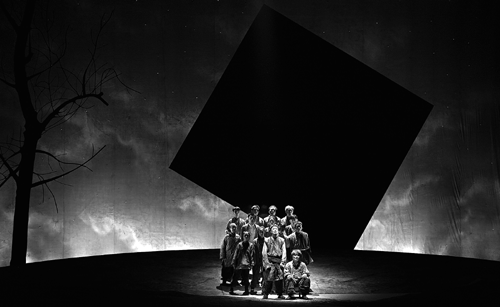
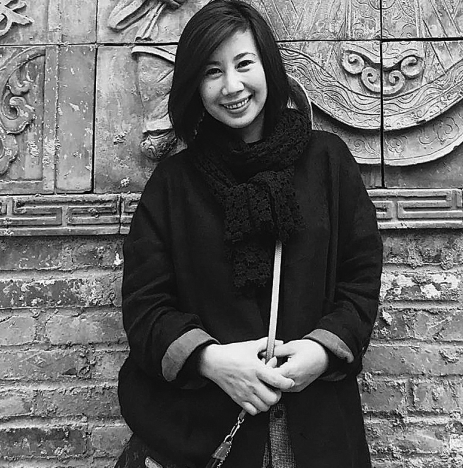
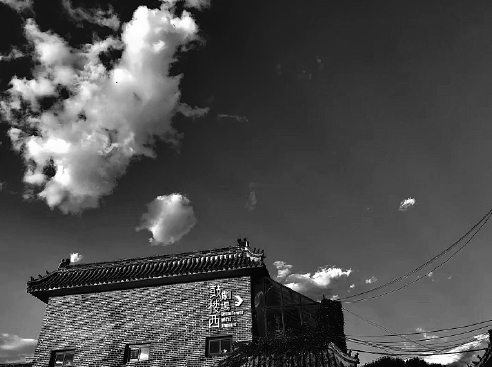
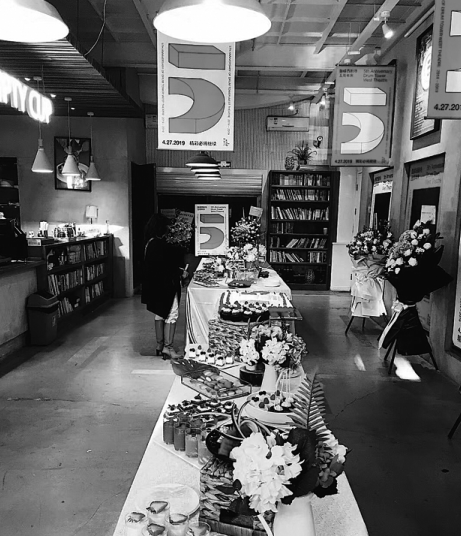
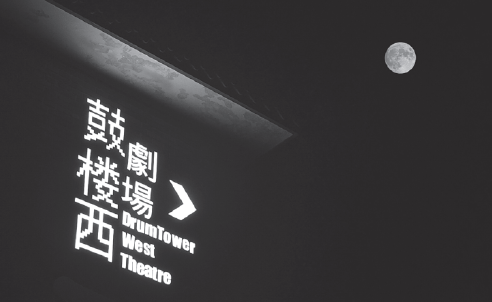
Today's Top News
- Xi, Trump chart course for Sino-US ties
- Crew members ready for Shenzhou XXI mission
- Business links with APEC economies to deepen further
- Hands on the helm to steer steady course for Sino-US relations amid global challenges
- Xi-Trump meeting vital for steering Sino-US ties
- China, US reach consensuses on tariffs, export restrictions
















